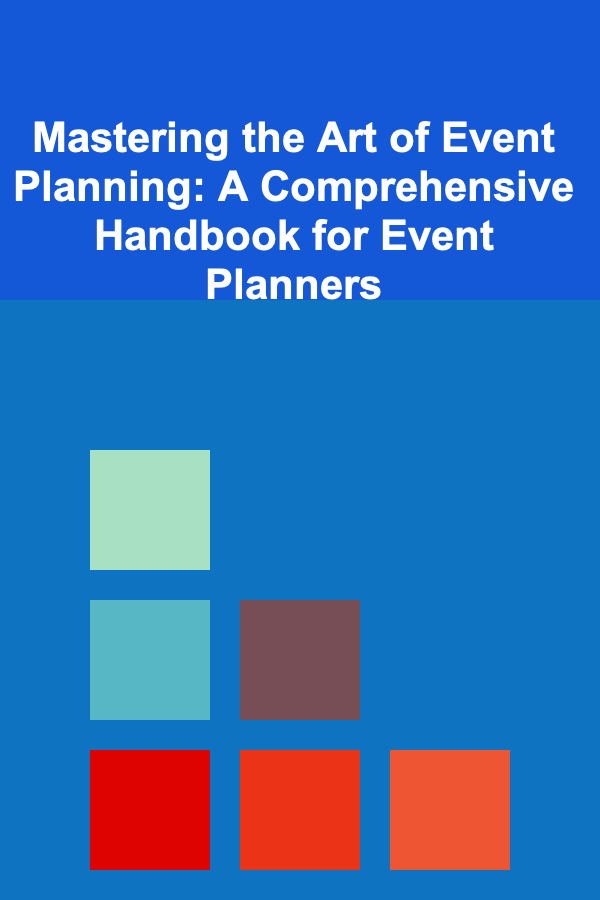
Planning Your Encore: How to Plan for a Second Career in Retirement
ebook include PDF & Audio bundle (Micro Guide)
$12.99$8.99
Limited Time Offer! Order within the next:

The traditional vision of retirement -- endless days of leisure, travel, and relaxation -- is increasingly giving way to a new reality for many: a second career. This isn't solely driven by financial necessity, although that certainly plays a role for some. Instead, many retirees are seeking purpose, continued intellectual stimulation, social engagement, and a sense of contribution in their post-traditional-career lives. This article delves into the multifaceted process of planning for a second career in retirement, exploring the motivations, considerations, and strategies for a successful and fulfilling transition.
Understanding the Shifting Landscape of Retirement
Retirement is no longer a cliff, but a continuum. Several factors are contributing to this shift, including:
- Increased Longevity: People are living longer, healthier lives, leading to extended retirement periods. This necessitates a re-evaluation of how those years are spent and funded.
- Financial Realities: Retirement savings may not stretch as far as anticipated due to inflation, unexpected expenses, and market volatility. A second income stream can provide crucial financial security.
- A Desire for Purpose: Many individuals find that unstructured leisure time, while initially appealing, can lead to boredom, isolation, and a diminished sense of purpose. A second career provides a framework for staying engaged and contributing to society.
- Evolving Career Paths: The modern workforce is more dynamic than ever. Individuals are more likely to have multiple careers throughout their lives, making the transition to a "retirement career" a natural extension of this trend.
- Access to Technology and Remote Work: The internet and digital tools have opened up a wide range of opportunities for remote work, consulting, and entrepreneurship, allowing retirees to pursue passions and generate income from anywhere.
Therefore, planning for retirement now requires a more holistic approach, encompassing not only financial planning but also career planning and personal development. It's about creating a life that is both financially sustainable and personally fulfilling.
Self-Assessment: Identifying Your Skills, Interests, and Values
The foundation of a successful second career lies in a thorough self-assessment. This involves honestly evaluating your skills, interests, values, and desired lifestyle. Consider the following questions:
Skills and Experience:
- What are your transferable skills? (Skills that can be applied across different industries or roles)
- What skills do you enjoy using?
- What skills do you want to develop further?
- What are your professional accomplishments and achievements?
- What skills are in high demand in the current job market? (Researching industry trends can be helpful here.)
Interests and Passions:
- What are you passionate about? What activities do you find intrinsically rewarding?
- What hobbies do you enjoy?
- What causes are you passionate about?
- What problems do you want to solve?
Values and Lifestyle:
- What is important to you in a career? (e.g., autonomy, creativity, social impact, financial security)
- What kind of work environment do you prefer? (e.g., remote, office-based, independent)
- How many hours per week are you willing to work?
- What is your desired income level?
- What level of stress are you comfortable with?
Tools like personality assessments (e.g., Myers-Briggs), skills assessments, and career aptitude tests can provide valuable insights and help you identify potential career paths that align with your strengths and interests. Consider working with a career coach or counselor for personalized guidance and support.
Exploring Potential Career Paths: Options and Opportunities
Once you have a clearer understanding of your skills, interests, and values, you can begin exploring potential career paths. The possibilities are vast and diverse, ranging from traditional employment to entrepreneurship and volunteer work.
Traditional Employment:
- Part-time Jobs: Many companies are seeking experienced and reliable part-time employees. This can provide a steady income stream and social interaction.
- Consulting: Leverage your expertise and experience to provide consulting services to businesses in your field.
- Temporary or Contract Work: Take on short-term projects or contracts to gain experience in new areas or supplement your income.
- Teaching or Mentoring: Share your knowledge and skills by teaching courses, workshops, or mentoring younger professionals.
Entrepreneurship:
- Starting a Small Business: Pursue a passion or hobby by starting your own business. This could be anything from crafting and selling goods online to offering specialized services.
- Freelancing: Offer your skills as a freelancer in areas such as writing, editing, graphic design, web development, or social media marketing.
- Online Business: Create and sell online courses, e-books, or other digital products.
Volunteer Work:
- Non-profit Organizations: Contribute your time and skills to a cause you care about. This can provide a sense of purpose and social connection.
- Community Organizations: Volunteer at local schools, libraries, or community centers.
- Mentoring Programs: Mentor young people or aspiring entrepreneurs.
Other Options:
- Real Estate: Invest in and manage rental properties.
- Writing: Write a book, blog, or articles for magazines or websites.
- Arts and Crafts: Create and sell artwork, crafts, or handmade goods.
It's important to research different career options and assess their feasibility based on your skills, interests, and financial goals. Consider factors such as market demand, earning potential, startup costs, and required training or certifications. Networking and informational interviews can provide valuable insights into different career paths.
Developing Your Skills and Knowledge: Education and Training
In many cases, transitioning to a second career will require acquiring new skills or updating existing ones. This may involve formal education, online courses, workshops, or on-the-job training.
Formal Education:
- Degree Programs: Pursue a degree in a new field or to enhance your expertise in your existing field.
- Certificate Programs: Complete a certificate program to gain specialized skills or knowledge.
Online Courses:
- MOOCs (Massive Open Online Courses): Take free or low-cost online courses from universities and other institutions.
- Online Learning Platforms: Enroll in online courses offered by platforms such as Coursera, edX, Udemy, and LinkedIn Learning.
Workshops and Seminars:
- Industry Conferences: Attend industry conferences and workshops to learn about new trends and technologies.
- Professional Development Courses: Take courses offered by professional organizations or training providers.
On-the-Job Training:
- Internships: Gain practical experience in a new field through an internship.
- Apprenticeships: Learn a trade or skill through an apprenticeship program.
- Mentorship Programs: Receive guidance and training from an experienced professional.
When choosing education or training programs, consider your learning style, budget, and time constraints. Focus on developing skills that are in high demand and that align with your career goals. Don't underestimate the value of soft skills, such as communication, problem-solving, and teamwork, which are essential in any career.
Financial Planning: Assessing Your Resources and Setting Goals
Financial planning is a crucial aspect of planning for a second career in retirement. It's important to assess your current financial situation, set realistic financial goals, and develop a plan for managing your income and expenses.
Assessing Your Resources:
- Retirement Savings: Calculate your retirement savings and projected income from pensions, Social Security, and other sources.
- Investments: Evaluate your investment portfolio and its potential for generating income.
- Other Assets: Consider any other assets you may have, such as real estate or valuable possessions.
- Debt: Assess your outstanding debts, such as mortgages, credit card balances, and student loans.
Setting Financial Goals:
- Desired Income: Determine the amount of income you need to cover your living expenses and achieve your financial goals.
- Savings Goals: Set savings goals for future expenses, such as travel, healthcare, or home improvements.
- Debt Reduction Goals: Develop a plan for paying off any outstanding debts.
Developing a Financial Plan:
- Budgeting: Create a budget to track your income and expenses.
- Investment Strategy: Develop an investment strategy that aligns with your risk tolerance and financial goals.
- Tax Planning: Consider the tax implications of your second career and develop a plan to minimize your tax liability.
It's advisable to consult with a financial advisor to develop a comprehensive financial plan that takes into account your individual circumstances and goals. A financial advisor can help you assess your risk tolerance, develop an investment strategy, and plan for retirement income.
Networking and Building Connections: Expanding Your Opportunities
Networking is essential for finding new opportunities and building connections in your desired field. This involves attending industry events, joining professional organizations, and connecting with people online and in person.
Online Networking:
- LinkedIn: Create a professional profile on LinkedIn and connect with people in your industry.
- Online Forums and Groups: Participate in online forums and groups related to your field of interest.
- Social Media: Use social media platforms to connect with people and share your expertise.
In-Person Networking:
- Industry Events: Attend industry conferences, workshops, and seminars.
- Professional Organizations: Join professional organizations related to your field.
- Networking Events: Attend networking events organized by business groups or community organizations.
Informational Interviews:
- Reach Out to Professionals: Contact people who are working in your desired field and ask for an informational interview.
- Prepare Questions: Prepare a list of questions to ask about their career path, responsibilities, and challenges.
- Follow Up: Send a thank-you note after the interview and stay in touch with the person.
Networking is not just about collecting contacts; it's about building relationships. Be genuine, offer value to others, and follow up with people you meet. The more people you know, the more opportunities will come your way.
Crafting Your Resume and Cover Letter: Showcasing Your Skills and Experience
When applying for jobs or seeking consulting opportunities, it's important to have a well-crafted resume and cover letter that highlight your skills and experience. Tailor your resume and cover letter to each specific job or opportunity.
Resume Tips:
- Focus on Transferable Skills: Highlight the skills that are relevant to the job or opportunity, even if they were acquired in a different industry or role.
- Quantify Your Accomplishments: Use numbers and metrics to quantify your accomplishments and demonstrate the impact you made in your previous roles.
- Use Keywords: Use keywords that are relevant to the job or industry to help your resume get noticed by applicant tracking systems (ATS).
- Keep It Concise: Keep your resume to one or two pages and focus on the most important information.
Cover Letter Tips:
- Tailor to the Job: Customize your cover letter to each specific job or opportunity, highlighting your relevant skills and experience.
- Show Your Enthusiasm: Express your enthusiasm for the job and the company.
- Explain Your Career Transition: Explain why you are making a career transition and how your skills and experience make you a good fit for the role.
- Proofread Carefully: Proofread your cover letter carefully for any errors in grammar or spelling.
Consider seeking feedback on your resume and cover letter from a career counselor or mentor. A fresh pair of eyes can help you identify areas for improvement and ensure that your resume and cover letter are effectively showcasing your skills and experience.
Embracing Flexibility and Adaptability: Navigating the Unexpected
The transition to a second career in retirement is not always a linear process. There will be challenges and setbacks along the way. It's important to embrace flexibility and adaptability and be prepared to adjust your plans as needed.
- Be Open to New Opportunities: Be open to exploring new opportunities that you may not have considered initially.
- Learn from Your Mistakes: Don't be afraid to make mistakes. Learn from your mistakes and use them as opportunities for growth.
- Be Patient: Finding the right second career may take time. Be patient and persistent in your efforts.
- Stay Positive: Maintain a positive attitude and believe in your ability to succeed.
The key to a successful second career is to stay engaged, keep learning, and embrace the opportunities that come your way. Retirement is not the end of your career; it's the beginning of a new chapter.
Conclusion: Reimagining Retirement and Creating a Fulfilling Encore
Planning for a second career in retirement is a proactive and empowering approach to extending purpose, engagement, and financial security beyond the traditional endpoint of one's primary working life. By undertaking a thorough self-assessment, exploring diverse career options, investing in skill development, managing finances wisely, networking effectively, and embracing adaptability, retirees can craft a fulfilling and meaningful "encore" that enriches their lives and contributes to society. The key is to approach this new phase with intentionality, creativity, and a willingness to learn and grow. Retirement is no longer just about winding down; it's about gearing up for a new adventure, a chance to pursue passions, make a difference, and redefine what it means to live a full and vibrant life.
Reading More From Our Other Websites
- [Organization Tip 101] How to Organize Gardening Tools and Supplies in Your Garage
- [Survival Kit 101] Best Survival Kit for International Travelers Facing Unforeseen Border Closures
- [Home Budget Decorating 101] How to Transform Your Living Room on a Tight Budget
- [Organization Tip 101] Common Mistakes to Avoid When Sealing Drafty Windows
- [Personal Care Tips 101] How to Select a Body Spray That Matches Your Favorite Season
- [Gardening 101] How to Design a Space-Saving Kitchen Garden in Small Areas
- [Personal Care Tips 101] How to Use Mascara to Accentuate Your Natural Eye Shape
- [Organization Tip 101] How to Use Antique Auctions to Enhance Your Collection
- [Home Party Planning 101] How to Host a Virtual Home Party for Long-Distance Friends
- [Home Lighting 101] How to Update Your Home with Modern Lighting Trends

How to Budget for Home Improvement Projects Efficiently
Read More
How to Handle Moving Difficult Items Like Pianos or Artwork
Read More
How to Make Money by Developing Deep Learning Applications
Read More
How to Navigate Relationship Anniversaries and Milestones
Read More
How to Sell Artwork on Etsy: An Actionable Guide
Read More
Mastering the Art of Event Planning: A Comprehensive Handbook for Event Planners
Read MoreOther Products

How to Budget for Home Improvement Projects Efficiently
Read More
How to Handle Moving Difficult Items Like Pianos or Artwork
Read More
How to Make Money by Developing Deep Learning Applications
Read More
How to Navigate Relationship Anniversaries and Milestones
Read More
How to Sell Artwork on Etsy: An Actionable Guide
Read More